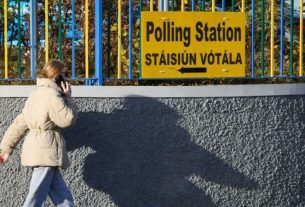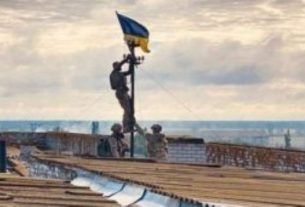Recent incidents involving harassment of mayors indicate that hardcore groups are becoming emboldened.
France’s top intelligence official warned on Sunday of the “very worrying resurgence” of violent actions by the ultra-right since the spring.
“Since the spring, we have witnessed a very worrying resurgence of violent actions and intimidation by the ultra-right, some of which are a clear break with the democratic framework”, stressed Nicolas Lerner, France’s Director General of Internal Security (DGSI), in an interview with the newspaper Le Monde
Lerner, who has been head of the DGSI since 2018, pointed in particular to attacks on the mayors of Saint-Brevin-les-Pins, who resigned after his home was burnt down, and Callac, where the installation of reception centres for asylum seekers and refugees was vigorously contested by the far right.
The senior civil servant is concerned, he says, about “the trivialisation of the use of violence and the temptation to try to impose one’s ideas through fear or intimidation” in the ultra-right movement, which “numbers around 2,000 people”.
Ten planned terrorist attacks by the ultra-right have been foiled since 2017, he pointed out.
With regard to the ultra-left movement, the importation of its “modes of action” on environmental issues, such as the protest against the proposed water storage megabasins at Sainte-Soline or the work on the Lyon-Turin rail line, “is a cause for concern”.
“The fight against global warming is a legitimate battle that deserves to be fought with determination. But with the means allowed in a democracy”, stressed Mr Lerner.
He regretted that “for some, this demand is a pretext for attacking the symbols of the State, the forces of order, what they call the ‘system'”.
However, he did not endorse Interior Minister Gérald Darmanin’s term “eco-terrorists”, explaining that “no action” of a terrorist nature had been committed in the name of the environmental cause in recent years – though he did assure agencies remain “vigilant” in the face of “ideologies that legitimise and theorise the use of violent action”.
And with regard to the risk of Islamist terrorism, Lerner explained that he is increasingly monitoring “radicalised individuals living in Europe or Central Asia” who are invited to take action by “terrorist organisations in Syria and, increasingly, Afghanistan”.
In December, two young radicals, one of Russian nationality and the other of Tajik nationality, were indicted and imprisoned on suspicion of preparing violent action on French territory.__Courtesy EuroNews





